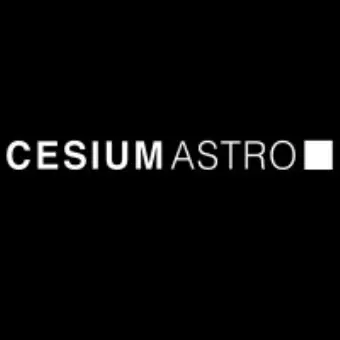Senior Flight Software Engineer II

CesiumAstro
This job is no longer accepting applications
See open jobs at CesiumAstro.See open jobs similar to "Senior Flight Software Engineer II" SpaceTalent.Software Engineering
Westminster, CO, USA
Posted 6+ months ago
Please Note: To conform with the United States Government Space Technology Export Regulations, the applicant must be a U.S. citizen, lawful permanent resident of the U.S., conditional resident, asylee or refugee (protected individuals as defined by 8 U.S.C. 1324b(a)(3)), or eligible to obtain the required authorizations from the U.S. Department of State.
At CesiumAstro, we are developers and pioneers of out-of-the-box communication systems for satellites, UAVs, launch vehicles, and other space and airborne platforms. We take pride in our dynamic and cross-functional work environment, which allows us to learn, develop, and engage across our organization. If you are looking for hands-on, interactive, and autonomous work, CesiumAstro is the place for you. We are actively seeking passionate, collaborative, energetic, and forward-thinking individuals to join our team.
We are looking to add a Senior Flight Software Engineer II to our Internal Missions team. If you enjoy working in a startup environment and are passionate about developing software for leading-edge communications satellites, we would like to hear from you.
In this position, you will be responsible for the Cesium satellite flight software and software-in-the-loop testing through all stages of the development process. Your work will include developing software to monitor, test, and control spacecraft subsystems such as attitude, command and data handling, navigation, thermal, and power. The ideal candidate will be an experienced spacecraft software engineer, motivated to develop every aspect of space mission software from Linux-based satellite operating systems to low-level embedded products. You will work and learn from a cohort of senior and principal software engineers. You will use your experience to direct, mentor, and grow a team of motivated spacecraft engineers in the development of a new satellite system.
As a Cesium team member, you will work on a small team to develop satellites and put them in orbit. You will be responsible for software design to include initial architecture and block diagrams, requirements definition, implementation, code review, and validation and verification. You will need to identify simplifying solutions to simulate complex problems and explain key results and decisions to the team.
JOB DUTIES AND RESPONSIBILITIES
- Design and implement software to build and integrate mission systems including satellites, ground stations, and mission operations centers.
- Design, develop, code, test, debug, and document system software.
- Review code and system designs.
- Analyze code for efficiency, stability, and scalability.
- Integrate and validate new product designs.
- Support software quality assurance and optimize I/O performance.
- Provide post-production/in-orbit customer support.
- Interface with hardware design and development engineers.
- Assess third party and open-source software.
JOB REQUIREMENTS AND MINIMUM QUALIFICATIONS
- Bachelor of Science (BS), Master of Science (MS), or Doctorate (PhD) degree in Software or Computer Engineering from an accredited university or institution.
- Minimum of 6 years of industry experience in spacecraft software development. A Master's degree may count as two years of experience.
- Experience in hands-on development and troubleshooting of software systems and hardware (such as motors, power distribution units, etc.).
- Experience with C, C++, Python, or other languages in an aerospace context.
- A strong understanding of space missions from conception through flight and disposal.
- Familiarity with spacecraft mission design including events, pointing modes, maneuver planning, sequencing, and operations.
- Experience with spacecraft failure in post-CDR testing and on-orbit, root cause analysis, and recovery.
- Experience with design for reliability, spaceflight redundancy, and fault detection, identification, and recovery.
- Space software experience with attitude dynamics, coordinate frame transformations, vector mathematics, radiative heat transfer, spacecraft propulsion, space communication systems, and power systems.
- Experience with communication protocols such as TCP/IP or UDP for use in software-in-the-loop and hardware-in-the-loop lab development and for use in space flight.
- Experience in interfacing a variety of open-source software to create an integrated system.
- Embedded software experience, particularly for space missions.
- Ability to implement physical first principles as scripts or spreadsheets.
- Experience with processes for software release, revisioning, and configuration.
- Familiarity with configuration management tools, defect tracking tools, and peer review.
- Experience with trades and processes for handling radiation tolerance in software on automotive grade parts.
- Familiarity with systems for continuous integration, test, and delivery.
- Excellent understanding of multi-threaded applications and resource management.
- Excellent written and verbal communication skills.
PREFERRED EXPERIENCE
- CubeSat and SmallSat experience including LEO, MEO, GEO, and beyond.
- Hands-on experience with spacecraft instrumentation, subsystems, and test labs.
- Experience with JPL F’, NASA cFS, and other commercial space software frameworks.
- Experience with ground system software engineering for space missions.
- Experience in a team leadership role on a space software program.
- Experience in other non-space safety critical software programs.
- Experience with network security.
CesiumAstro considers several factors when extending an offer, including but not limited to, the role and associated responsibilities, a candidate’s work experience, education/training, and key skills. Full-time employment offers include company stock options and a generous benefits package featuring health, dental, vision, HSA, FSA, life and retirement plans.
CesiumAstro, Inc. is an Equal Opportunity/Affirmative Action employer. All qualified applicants will receive consideration for employment without regard to race, color, religion, sex including sexual orientation and gender identity, national origin, disability, protected Veteran Status, or any other characteristic protected by applicable federal, state, or local law.
Please note: CesiumAstro does not accept unsolicited resumes from contract agencies or search firms. Any unsolicited resumes submitted to our website or to CesiumAstro team members not through our approved vendor list or Talent Acquisition will be considered property of CesiumAstro, and we will not be obligated to pay any referral fees.
This job is no longer accepting applications
See open jobs at CesiumAstro.See open jobs similar to "Senior Flight Software Engineer II" SpaceTalent.


